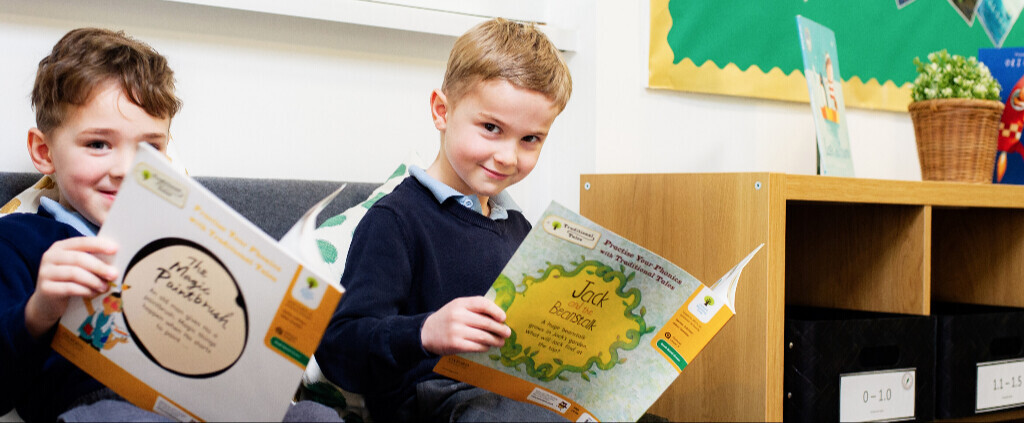Reading
At Barby, we strive to create life-long readers who have an enthusiasm to read competently in a range of contexts as well as a love of reading for pleasure.
We use the National Curriculum objectives and skills-based progression maps to inform our planning, these ensure a coherently planned and sequenced journey towards fluency in reading. Reading skills are taught through English lessons and are reinforced throughout the whole curriculum. Teachers deliver whole-class reading sessions where high-quality texts are studied and various text types are explored. Children are taught the range of reading skills covered in the content domains through the use of Reading VIPERS (Vocabulary, Infer, Predict, Explain, Retrieve, Sequence (KS1) /Summary (KS2).
| Title | Description | Download |
|---|---|---|
| pdf Reading VIPERS question stems KS2 | Download | |
| pdf Reading VIPERS question stems KS1 | Download |
Throughout the school we value Reading for Pleasure, and children have opportunities to enjoy reading every day to build their stamina in independent reading. Each class has a dedicated story time where children enjoy listening to a range of books We aim for all children to read widely and often across a range of authors and genres so that they develop a love of reading for life. We have recently introduced the Accelerated Reader programme at Barby, children’s efforts to read regularly, broadly and with good comprehension are rewarded.
| Title | Description | Download |
|---|---|---|
| pdf Accelerated Reader Information for Parents | Download |
All children have the opportunity to borrow level specific reading books; these are phonetically decodable in Reception, Year 1 and where necessary in subsequent years. Children visit the school library once a week where there are a range of fiction and non-fiction books as well as newspapers and comics. All children are encouraged to share books at home as this is a crucial part of their child’s reading journey. Children are expected to read at home at least three times a week and record their reading in the ‘Reading Record’ log book. Children are encouraged to record their Accelerated Reader Quiz scores here to share with their parents at home.
Phonics
Phonics is taught daily in Reception and Key Stage 1 and as an intervention in Key Stage 2. Phonics is delivered to Reception from the first week of starting school. The whole school shows fidelity to the Little Wandle scheme. Regular revision of sounds and spelling patterns takes place throughout all year groups.
Year 1 children sit the phonics screening check in the summer term. This is a light touch assessment to confirm whether individual children have learnt phonic decoding to an appropriate standard to support their reading progression through school. Children are presented with 40 decodable words to read, these are made up of a mixture of real and nonsense words.

